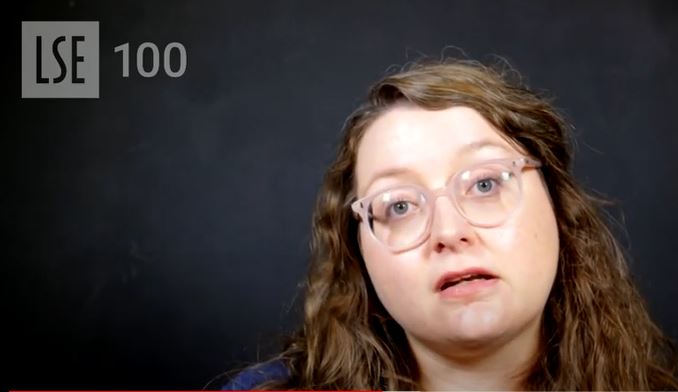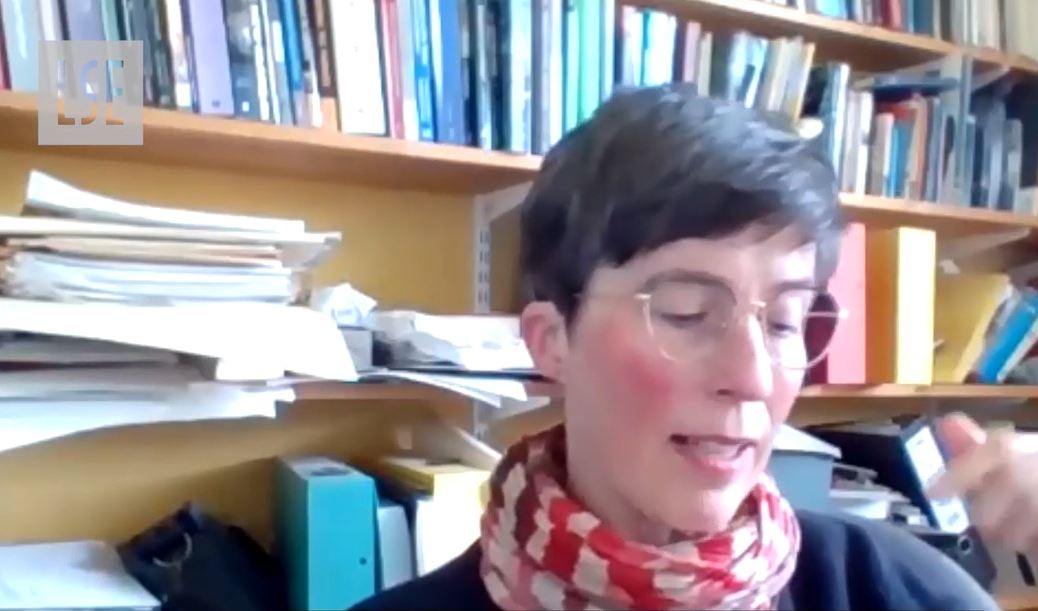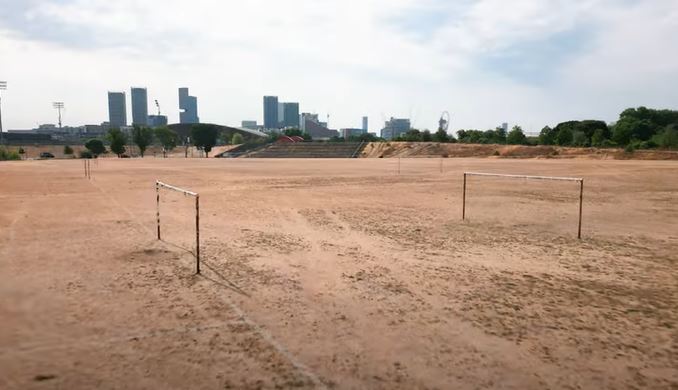Sustainability can be a rewarding but destabilising topic. You can support students and their learning by choosing pedagogic approaches to suit both the material, and your intended outcomes. Eden Centre departmental advisers are available to discuss possible approaches and activities.
Education for Sustainability Student Internships
The Education for Sustainability Internships Programme is designed to engage both undergraduate and postgraduate students as research interns, partnering with academic staff to embed sustainability into their courses. The programme focuses on integrating sustainability into the curriculum, supporting curriculum enhancement, and developing students’ research skills. Selected students will collaborate with staff to identify sustainability-related frameworks and propose curriculum changes. Academics are encouraged to apply, outlining curriculum redesign plans in partnership with students. This initiative builds on the success of previous research collaboration schemes and aligns with LSE's commitment to education for sustainability, stemming from the LSE 2030 strategy, which promotes global impact education, and the LSE Sustainability Strategic Plan.
Learn more about the initiative here.
The Eden Catalyst Fund
The Eden Catalyst Fund supports evidence-based education enhancement and innovation projects related to various themes, including Education for Sustainability, with grants of up to £10,000. The fund backs initiatives that contribute to the development and delivery of education enhancement activities at the School.
Read more here.
Videos
Take a look at these videos below on the topic of sustainability. Further down this page, you can find information on further networks and helpful resources.
Content adapted from University of Plymouth with thanks.

Dr. Jillian Terry (Assistant Professorial Lecturer and Co-Director of LSE100) discusses the embedding of sustainability in LSE100, LSE's flagship interdisciplinary course taken by all first-year undergraduates. Watch the video.

Dr Abby Innes from the European Institute tells us how embedding sustainability in her courses has led to improved learning outcomes and wellbeing benefits. Watch the video.

@MockCOP26 and the University and College Union - UCU have produced a short film highlighting the impacts of the climate crisis on students, pupils, and the education workforce. The film raises awareness to the parallels of how the climate crisis is affecting those in the Global South and the Global North, with case studies from India and England. Watch the video.
-
Critical reflection Reflexive accounts, learning journals, discussion groups
-
Systemic thinking and analysis Real-world case studies and critical incidents, project-based learning, stimulus activities, campus as a learning resource
-
Participatory learning Group or peer learning, developing dialogue, experiential learning, action research/learning to act, and developing case studies with local community groups and business
-
Collaborative learning Guest speakers, work-based learning, interdisciplinary/ multidisciplinary working
-
Thinking creatively for future scenarios Using role play, real-world inquiry, futures visioning, problem-based learning
The HE sector has a unique role and responsibility in protecting the planet and delivering on the United Nations’ Sustainable Development Goals (SDGs). This requires research that makes progress against the SDGs and graduates with the core sustainability competencies required to address financial, environmental and social sustainability. However, 1.7% of Global World Product (GWP) is spent in Higher Education, so the sector also has to take approaches to their people, practices and places that are consistent with the goals.
Advance HE in collaboration with Times Higher Consultancy have developed a range of products for institutions and governments to support the higher education sector to promote and utilise the SDGs to drive institutional change across research and culture, curricula and civic responsibility.
Find out more on their website.
SOS-UK is a student-led education charity focusing on sustainability that:
- delivers programmes and campaigns that enable students and society to act on sustainability;
- offers a range of learning opportunities and events to support sustainability action across the education sector and beyond;
- carries out specialist research into sustainability and social responsibility of the education sector in the UK and internationally;
- offers a range of services and packages to help drive sustainability through higher education institutions.
- AdvanceHE: Education for Sustainable Development Guidance
- AdvanceHE: Practice Guides to support Education for Sustainable Development
- 'Advancing the UN Sustainable Development Goals through Education Abroad’. The Forum on Education Abroad
- Barth, M., Michelsen, G., Rieckmann, M., & Thomas, I. (2018) 'Routledge handbook of higher education for sustainable development' (First issued in paperback). Earthscan from Routledge.
- Blake, J., Sterling, S. & Goodson, I. (2013) 'Transformative Learning for a Sustainable Future: An Exploration of Pedagogies for Change at an Alternative College', Sustainability, 5, 1-x manuscripts, http://www.mdpi.com/2071-1050/5/12/5347
- Corcoran, P., Calder, W. & Clugston, R. (2002), Introduction: higher education for sustainable development. High Educ Policy 15, 99–103. https://doi.org/10.1016/S0952-8733(02)00009-0
- Dumas, Marion (2019), The case for universal climate education in universities, LSE Blogs
- Education for Sustainability: A Guide for Educators on Teaching and Learning Approaches (University of Gloucestershire, 2011)
- Gamage, Kelum A. A., and & Gunawardhana, N. (2022) The Wiley Handbook of Sustainability in Higher Education Learning and Teaching. Wiley Handbooks in Education. Hoboken, NJ: Wiley-Blackwell.
- Illuminem - Energy & Sustainability focused news aggregator that curates that collect recent and comprehensive information about global Sustainability and Energy media headlines.
- International Association of Universities (IAU): What is Higher Education and Research for Sustainable Development (HESD)?
- Introducing sustainability to undergraduate module assessment in accounting - Pik Liew, LSE, 2021
- Jones, P., Selby, D. & Sterling, S. (2010) Sustainability Education: Perspectives and Practice across Higher Education, Earthscan: London & Washington, DC
- NUS case studies – Embedding sustainability in UK HFE
- Pavlova, Margarita (2013) Towards using transformative education as a benchmark for clarifying differences and similarities between Environmental Education and Education for Sustainable Development, Environmental Education Research, 19:5, 656-672, DOI: 10.1080/13504622.2012.736476
- Purcell, W.M. (2021), Higher Education And The Sustainable Development Goals
- Purcell, W.M. and Haddock-Fraser, J. (Co-Editors). (2021), Handbook on Sustainability In Higher Education: An Agenda For Transformational Change.
- Purcell, W.M., Henriksen, H. and Spengler, J.D. (2019), "Universities as the engine of transformational sustainability toward delivering the sustainable development goals: “Living labs” for sustainability", International Journal of Sustainability in Higher Education, Vol. 20 No. 8, pp. 1343-1357. https://doi.org/10.1108/IJSHE-02-2019-0103
- QAA Education for Sustainable Development guidance – Executive Summary (Quality Assurance Agency for Higher Education, 2021).
- Reimagining sustainability - A key role for higher education (Tristan McCowan, posted in University World News, 17 June 2023)
- Santos, Gabbie (2021), Bringing academic research and the ‘real world’: LSE Public Research Partners for Civic Engagement, LSE Blogs
- Simone Strambach (2017) Combining Knowledge Bases in Transnational Sustainability Innovation: Microdynamics and Institutional Change, Economic Geography, 93:5, 500-526, DOI: https://doi.org/10.1080/00130095.2017.1366268
- University of Plymouth: 7 Steps to Embedding sustainability in your teaching
- University of Plymouth: Sowing Seeds – How to make your modules a bit more sustainability related
- UN SDG Learn - UN-led initiative that provides useful and curated learning solutions on sustainable development topics.
- Vann, J.; Pacheco, P.; Motloch, J. (2006) Cross-cultural education for sustainability: development of an introduction to sustainability course. Journal of Cleaner Production 14(9): 900-905. DOI:10.1016/j.jclepro.2006.01.002
- Winter, J. & Cotton, D. (2012) 'Making the hidden curriculum visible: sustainability literacy in higher education', Environmental Education Research, 18:6, pp. 783 – 796. DOI:10.1080/13504622.2012.670207
- Wyness, L. (2015) Education for Sustainable Development Pedagogy: Criticality, Creativity, and Collaboration, PedRIO Occasional Paper 8: University of Plymouth.